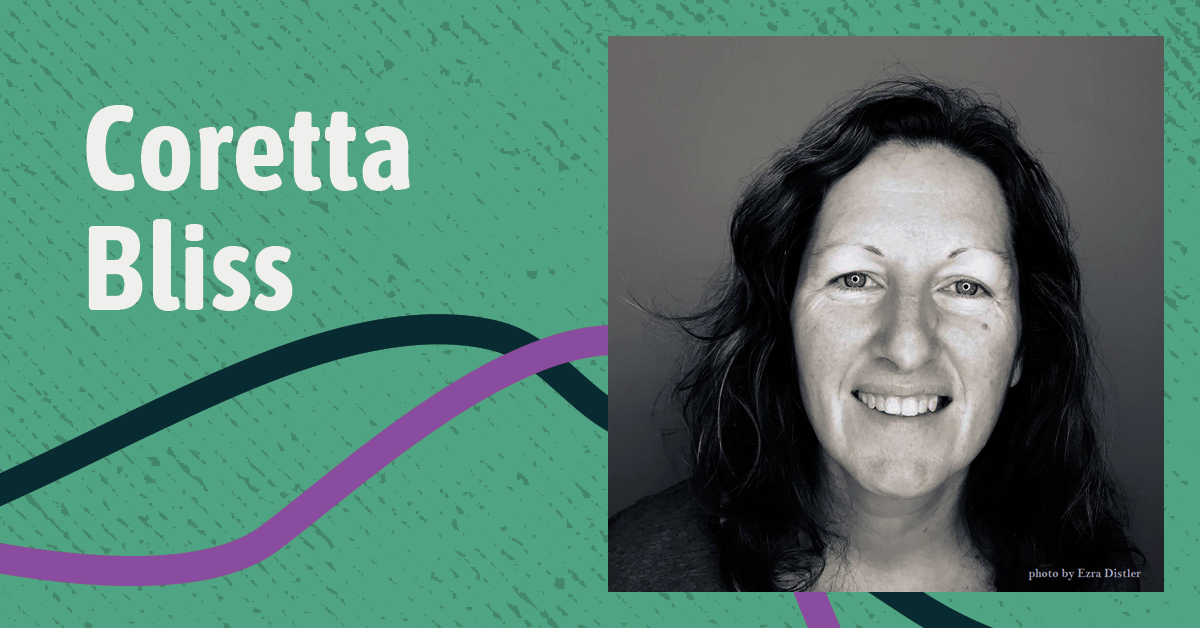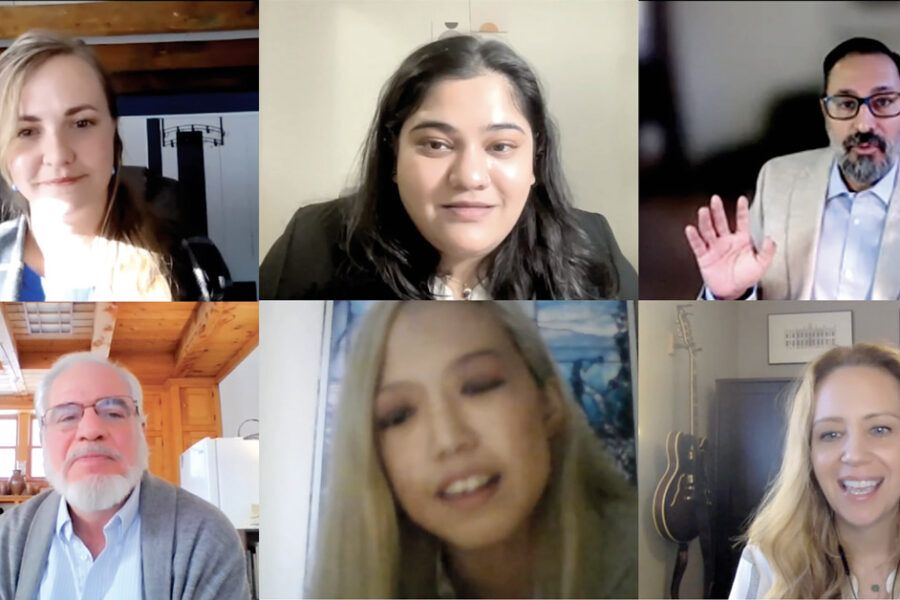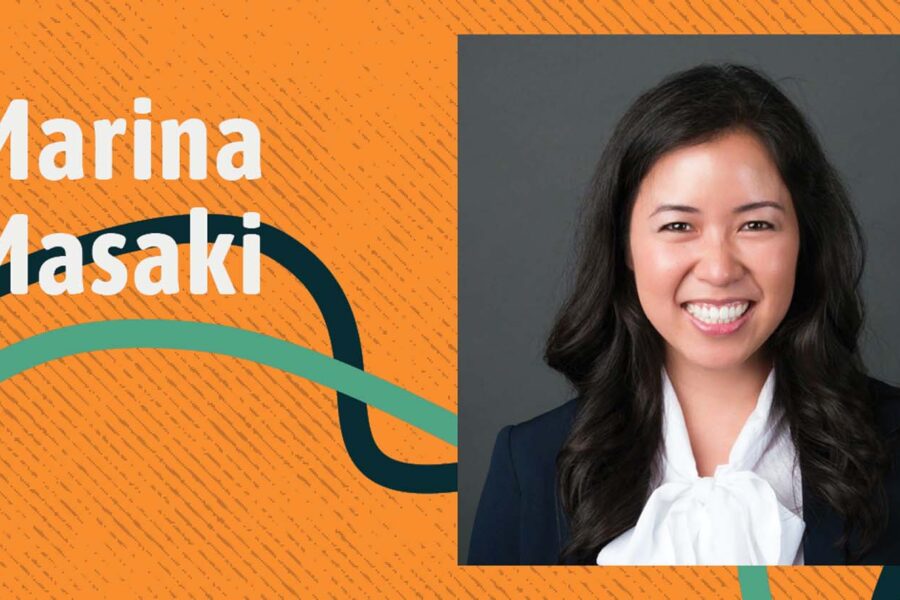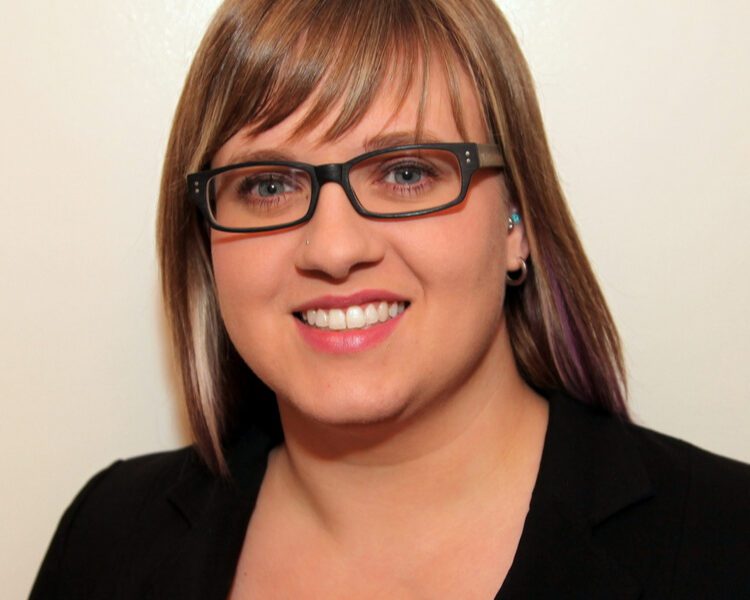For Coretta Bliss, kindergarten was a hard year. Her parents—activists living on a Catholic Worker Farm—were viewed as outsiders by the local community. She ended up feeling unwelcome even in her classroom. As she explains, “I just sat at my desk and kept my mouth shut and was scared of the teacher.”
The following year, her family moved to Montreal, and her new classroom was totally different. Her new teacher, an immigrant from Trinidad, loved learning so much that Bliss also fell in love with being a student. “That was the first time I realized that school can be fun, and I loved school,” Bliss says. “That set me on a path of lifelong learning.”
Today Bliss is continuing that journey as she studies for a Master of Human Services Administration. And she carries on her first-grade teacher’s enthusiasm as she herself supervises and guides teachers in Head Start and Early Head Start programs in Brattleboro, Vermont. Through her studies at Antioch, Bliss is developing the skills to make even more of an impact in that organization—and to carry on a legacy of activism and teaching to future generations.
The Power of Children Singing

Bliss worked for many years as a Lead Teacher in Head Start Programs, and today she has moved into the position of Child Development Manager. She loves how this work lets her make a difference in children’s lives and enrich the community by helping at-risk families.
A key way that Bliss connects with children is through the power of song. She loves singing and playing guitar with young students. For herself, music came into her life early, too. “As soon as I could talk, I was running around singing,” Bliss says. Since then, she has continued making music and writing songs.
“Music is a great way to ease that flow and create community in a classroom,” Bliss says. One of her favorite activities from teaching is leading circle times or group movement activities. Keeping children engaged through fun activities cuts down on time spent managing behaviors. Focusing on the magic of the activity keeps kids pulled in and motivated.
Creative activities, Bliss explains, are a great way to reveal latent strengths. She recalls one specific child, who the other teachers had labeled as shy. During dramatic play, the attention of the entire class narrowed on him as he was asked to act out the part of a bear. Suddenly the star of the show, the child bloomed out of his shell of shyness.
“All you have to do is find what they’re passionate about and find ways to draw that out of them,” says Bliss. “Take that energy and make it a positive thing. If that gets missed, they just get seen as disruptive.”
Positivity in the classroom cuts down on distractions and keeps kids focused on what they should be doing. Bliss tells the teaching teams she now leads to “think on the fly” and to be “firm but flexible.” She says, “If you’re too wishy-washy, and kids don’t know what their limits are, it makes them anxious.”
Now that she is a Child Development Manager, she says she’s developed an acute sensitivity to the differences between classrooms that are chaotic and those that are well-run and joyful. At the heart of this difference is the community between the students and the connection with the teacher.
A Rich Tradition of Activism
Bliss came to Antioch in part because she had heard stories about the New England campus from friends who had attended other programs there. She had heard especially about the university’s mission of social justice. She herself participates in Diversity, Equity, Inclusion, and Social Justice activities at Head Start, so she resonated with Antioch’s emphasis on doing good work for humanity.
Bliss was particularly interested in this because she has a rich history of activism in her family. Her parents were involved in the Catholic Worker movement in New York City during the 1960s. This organization “is really about social justice causes and helping the less fortunate,” says Bliss. Her parents had themselves grown up very disadvantaged, and, she explains, “they wanted to make sure they helped others.” When they had a daughter, they chose to name her after the Civil Rights Movement leader (and 1951 Antioch alum), Coretta Scott King.
The Catholic Worker movement is an organization founded around the observation that capitalist society results in an unjust distribution of wealth. In response, it creates communes focused on manual labor and voluntary poverty. Everything beyond residents’ immediate needs goes to people currently lacking basic necessities.
Bliss took the values she learned from her parents into her chosen career in early education. Bliss says, “I think I was probably drawn to Head Start because I could teach young children from families at risk.”
“This is the beauty of professional preparation programs,” says Mary Ann Short, Director of the Graduate Management Studies Program. She explains that socially conscious and inclusive education is a key part of the program and that one of the highest priorities is “to enable leaders to have meaningful impact on their organizations and communities.”
Another reason Bliss was attracted to the Master’s degree in Human Service Administration program was because of the flexibility of its online modality. It offers 100% asynchronous learning and the ability to take one class at a time. Bliss has found that this allows her “to do my homework on nights and weekends since work is really demanding.” It also allows time for her passions outside of work, like jam sessions and craft nights. “There’s a creative side to me that always needs to be fulfilled,” Bliss says.
Helping Children and Healing Families at Head Start
Bliss is proud of the work that Head Start does beyond offering pre-K classes. These offerings include wraparound services, parent education, and home visits. Head Start also serves the general community through welcome baby baskets and housing assistance. Anyone in the community with a child under six years old can come to them for help. Explains Bliss, “We’re really trying to improve the lives of children and pregnant moms and anyone who needs it.”
There are many resources for parents at Head Start. One of the programs, Rockinghorse Moms, helps moms who are struggling with substance abuse. There is also a Dedicated Dads group that helps fathers to be more present in the lives of their children. Head Start also works with many kids in foster care, and in the past, they have offered support groups for foster parents, which they hope to resume at some point. “Teaching children is the heart of what we do,” says Bliss. “But there’s so much more. It’s a bigger program.”
Part of why she is currently pursuing the MA in Human Services Administration is to prepare for continued growth in her job. She is interested in staying at Head Start and possibly eventually serving as executive director of a Head Start program in her area.
She’s come a long way from all those years ago when she was a kindergartener who didn’t feel safe in her own classroom. But there’s a beautiful symmetry in the fact that today her work reaches many dozens of young students in her own community, assuring that they will have much more positive experiences and will develop a passion for learning the same way that she did under her first-grade teacher in Montreal.
Her mission is simple but powerful. “I try to find space for children to express themselves and be who they are,” she says, “to find their strengths and build them.”






